NZ election 2023: country divided over Maori co-governance, language and indigenous rights
Maori nationalism is on the rise in New Zealand, with the country divided over co-governance, language and indigenous rights. As an election looms, are the players stoking tensions for political advantage?
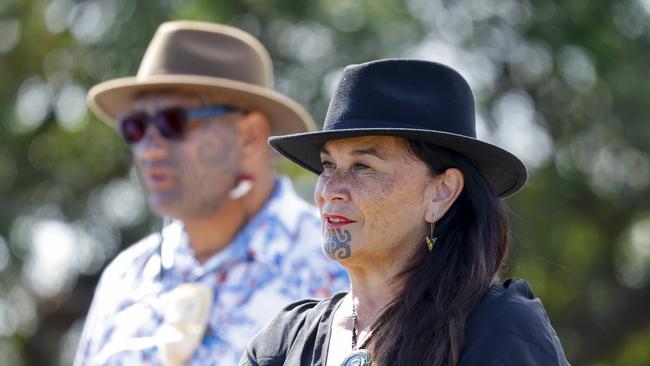
Rawiri Waititi is furious. Te Pati Maori (the Maori Party), of which he’s leader, has just been accused of racism by an interviewer on New Zealand television, based on his comments on the party’s website that Maori genetic makeup is “stronger than others”.
“Well it is stronger in me, and I’ve got a whole lot of genetics in me,” Waititi responds lightly, before apparently realising how serious this accusation is. “How can it be racist when you’re trying to empower people that are climbing out from the bottom of… colonial violence for the last 183 years?” the 43-year-old demands furiously. “We’re trying to rebuild our people, after years of colonial violence. So why can’t we say to our people that your genetics is something you can be proud of?”
A few hours later in the South Island town of Nelson, Winston Peters, the maverick statesman of New Zealand politics, is addressing a packed public meeting with equally inflammatory language. Peters, whose father is Maori and mother Scottish, sits on the opposite side from Waititi in an ethnic debate now dividing the country. He is applauded throughout his address but some of the loudest applause comes when he attacks Waititi’s words – and then goes on to tell the crowd that Maori aren’t indigenous to New Zealand. “Here’s the rub if you are Maori. We’re not indigenous,” Peters tells his mainly white, mainly elderly supporters. “We come from Hawai-iki. Where’s our Hawai-iki? We think it is in the Cook Islands... but we’re not from here. And you go back 5000 years, we came with our DNA from China. Not like 55,000 years in Australia.”
New Zealand’s two main parties, National and Labour, immediately rubbished Peters’ claims as ridiculous and divisive.
But David Seymour, leader of the libertarian ACT party, considers Waititi’s remarks as the more profoundly dangerous in a country already concerned about the rise of ethnic nationalism. “The language of the Maori Party has an explicit agenda,” says Seymour, who, on current polling, will find himself in coalition with the National Party after the October 14 general election. “What they say is not so different from far-right racist groups. What would happen if we put on our website that we are genetically stronger than Maori? People would be outraged,” he tells The Weekend Australian Magazine.
Waititi’s post, which was a part of Te Pati Maori’s sports policy celebrating indigenous achievement, has since been removed from the website. Waititi admits it was controversial but continues to defend it, saying: “I think the reality is, our people and many other indigenous peoples pre-colonisation had to have the physical strength to survive our lifestyle. It was a matter of physically being able to simply survive – that’s fact. Why can’t we call ourselves proud? Why can’t we believe in ourselves?”
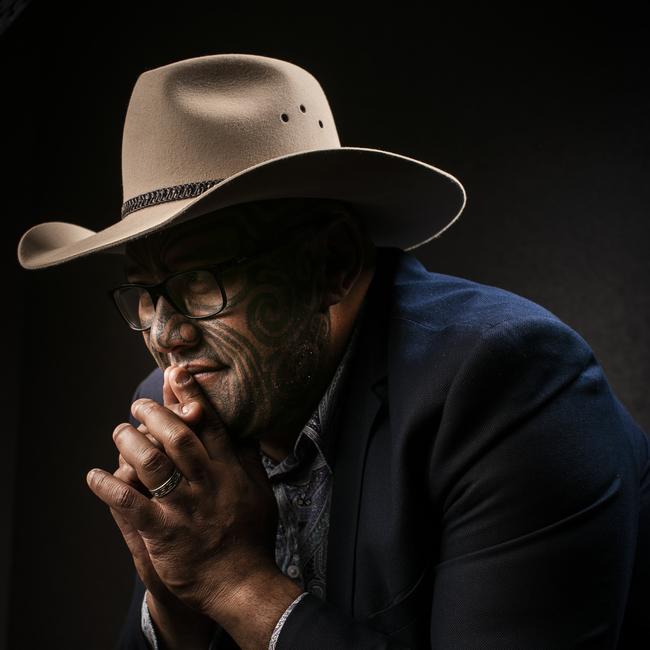
After 50 years of reconciliation, New Zealand is once more dividing along racial lines. Praised globally for decades as being at the forefont of indigenous rights, the country is facing rising tensions over issues from shared governance to the renaissance of the Maori language amid cries of discrimination on both sides. These tensions are coinciding with the upcoming election, and come in the wake of the departure of Jacinda Ardern as prime minister. In particular, the acceleration of co-governance by Ardern’s government – especially in the reform of water services – and a pivot by her party toward Maori language, culture and values have left many New Zealanders confused and angry. Both Maori and non-Maori are concerned that democracy is giving way to ethnic-based politics that ignore serious issues faced by the indigenous population.
A poll taken four weeks before the election shows that, while the high cost of living, a creaking health system and rising crime are at the forefront of most voters’ minds, Kiwis are concerned at the racial divisions, and disquieted by what some believe is an ethno-nationalist agenda that discriminates against non-Maori. The Dominion Post/Freshwater Strategy poll found that 50 per cent of Kiwis do not want more shared governance with Maori, and the same proportion want a return to solely English names for government departments, which are now also known by their Maori equivalent.
The divide is such that it became the subject of the second leaders’ debate last week, when Prime Minister Chris Hipkins accused Opposition leader Christopher Luxon of being willing to work with “racists” after Luxon said he would be open to working with Peters’ New Zealand First in a coalition government. Hipkins also accused Peters of “playing the race card” – ignoring the fact that Te Pati Maori, his own potential coalition partner, has been accused of doing exactly the same thing.
To any outside observer, reconciliation in New Zealand has been a success. Maori, who make up 17 per cent of the population, have been guaranteed a voice in parliament since 1867, with seven Maori-only seats set aside to ensure representation for the indigenous people. Overall, there are currently 22 Maori MPs in the 120-seat parliament.
Settlements deriving from the Treaty of Waitangi, New Zealand’s founding document, have given Maori tribes billions of dollars – allowing them to create multi-million dollar business development corporations – while the entire country celebrates Matariki Day, the Maori New Year, as a public holiday after Ardern made it official in 2022.
Dr Bryce Edwards, a political analyst at the Victoria University of Wellington, points out that the high integration between the populations – one of the highest in the world – is a good measure of race relations. “It suggests there is more harmony than differences,” he says. But he also points out: “There are many political agendas that relate to ethnicity that are totally unconnected to that harmony.”
Waititi, co-leader of Te Pati Maori with Debbie Ngarewa-Packer since 2020, has an unashamedly radical agenda, blaming the sins of colonisation and current political inertia for the poor outcomes in life expectancy, health, education and housing of his people.
The party, founded in 2004, took a more moderate stance under its former leader John Tamihere, even supporting the centre-right National Party in government from 2008 to 2017. But under Waititi and Ngarewa-Packer, who are also its only MPs, the party has gone down a more revolutionary path.
‘You can’t say the Europeans are the architect of our disaster. We have to drag ourselves up because we’re the only ones who can save ourselves.’
Waititi, who was brought up with the Maori worldview on a marae (meeting ground) in a remote area of the North Island and spoke almost exclusively Maori until he went to school in Auckland, is passionate about rights for his people and unapologetic over how he goes about fighting for them. “Growing up surrounded by my elders on the marae, hearing them speak Maori, preach their tikanga [customs and protocols] about how we treat people absolutely conditioned the person I am today,” he tells The Weekend Australian Magazine. “My kaumatua [elders] are my biggest political inspiration, because fundamentally, that experience allowed me to learn who I am, my sense of identity and most importantly it created my sense of belonging.”
Being sent to secondary school in Auckland was a culture shock, not least because he was one of only a few pupils who spoke Maori, and seems to have found it difficult to make friends with anyone but fellow Maori and Pasifika kids.
“The challenges that presented, not just having to learn English but also the ways in which they do things, including education, was something I had to learn quickly,” he says.
The experience helped define the man he became – a man who advocates for Maori culture above all, and sees himself and his people as standing outside European society.
It’s when he’s discussing learning both the Maori and non-Maori cultures that this view becomes especially apparent. “I was blessed with an upbringing in [the Maori worldview], and had the opportunity to learn the western culture that was introduced by consent,” he explains. “That’s what makes Maori and indigenous peoples truly magical, having experience in the two. The same simply cannot be said about our tauiwi.”
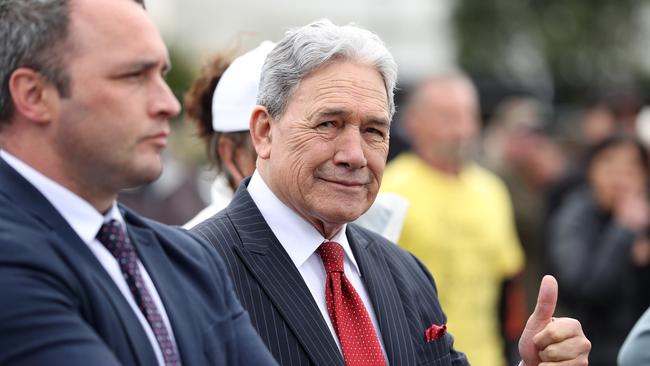
Saying western culture was “introduced by consent” is central to Waititi’s politics: the remark points to Maori allowing Europeans to introduce their culture rather than having it foisted on the country by conquest. But it’s the use of the word “tauiwi” that is telling. Tauiwi is the Maori word for non-indigenous people but it literally means “foreigners” (or, as Waititi translates it, “visitors”), which makes it clear the non-Maori population doesn’t really belong.
This belief is also visible in Te Pati Maori’s policies: the party advocates for a “divorce” from the British royal family, and Waititi was famously ejected from parliament in 2021 for refusing to wear a tie, on the basis that it was a “colonial noose”. (The government went on to drop the tie requirement after Waititi stood his ground on the issue). He now proudly wears a Maori hei-tiki around his neck which, along with his cowboy hat and full face moko (tattoo), make him instantly recognisable amid the more conventionally drab MPs in parliament.
In his maiden speech he gave a sign of how he would fight, railing against a welfare system that “keeps my people poor”, a health system that “keeps my people sick”, education that “keeps my people dumb”, and a housing system that “keeps my people homeless”.
Among Te Pati Maori’s 2023 election policies is a vow to remove all Maori children from care, empty all prisons by 2040 and introduce a judicial system based on Maori customary practices to fight what he describes as institutional racism “that has traumatised and failed Maori communities at every level”.
Waititi’s rhetoric may be controversial, but it has driven votes the way of Te Pati Maori. Polling, which had the party on five per cent a year ago, has dropped to remain steady around the three per cent mark, but this is still only slightly lower than Winston Peters’ New Zealand First (at four per cent) and would give it four MPs in parliament under the country’s proportional voting system.
For much of this year it looked as if the party would be kingmaker in a coalition government of Labour and the Greens. Although Labour’s support has now fallen so low it’s unlikely to return to power, Te Pati Maori will double the number of their MPs and Waititi will get more momentum to fight for indigenous rights.
At the Tuwharetoa Taiopenga festival in Taupo, where thousands of Maori schoolchildren celebrate their culture, many of the gathered parents tell me that Waititi and Ngarewa-Packer are the only politicians who understand the issues faced by their people.
It’s certainly true that Maori, like Australia’s Indigenous population, are at the bottom of statistics concerning health, education, housing and life expectancy. But Waititi has weaponised the statistics to push his agenda while, some would argue, exacerbating social divisions. Recently he used life expectancy – Maori die seven to 10 years earlier than non-Maoris, according to the statistics – to attack his rivals on the Right, claiming on television that they actively want Maori to have a lower life expectancy. “That’s the problem with those types of parties, National and ACT, who want to see Maori die seven to 10 years early,” he told TV1.
Later, he justifies his comments to me, saying: “There’s a deliberate attempt to keep the status quo, turn a blind eye to the writing that’s on the wall and to repetitively expect different results by doing the same thing all over again.
“The health statistics for Maori haven’t changed for years. We are more susceptible to all cancer diagnoses, we have increased rates of diabetes, heart disease – and almost every other health statistic out there is negative for us.
“Failing to acknowledge this by not implementing equitable policy to address these issues is a deliberate choice. It’s not about the policies they’ve put in place, but the lack of them to address health outcomes for Maori.”
He adds, importantly: “[The Treaty of Waitangi] asserted that Maori have the same rights as their British counterparts. Never did it assert that it was OK to have Maori dying earlier – this is the fundamental issue.”
But many deride this kind of rhetoric as the politics of victimhood. “You can’t say the Europeans are the architect of our disaster,” Winston Peters tells me. “We have to drag ourselves up because we’re the only ones who can save ourselves.”
To understand how debate in New Zealand has become mired in ethnic politics, it’s important to understand the country’s history going back to the Treaty of Waitangi.
At the centre of debate is the meaning of the Treaty – whose wording has been interpreted differently by Maori and non-Maori citizens from its inception. It was signed in Waitangi on February 6, 1840, by 43 Maori chiefs and, representing the Crown, Governor William Hobson. More than 500 chiefs around the country would go on to sign the Treaty, but there is an argument that many of them wouldn’t have signed had they had known what the English translation said.
In the English translation, Maori ceded “absolutely and without reservation” sovereignty to the Crown, but were guaranteed “undisturbed possession” of lands, forests and fisheries. Maori and non-Maori were also guaranteed equal rights.
In the Maori translation, Maori gave the British not sovereignty but “kawanatanga” – the right of governance. In other words, they allowed the British the right to govern the country and its citizens, while Maori retained the right to manage their own affairs.
In the article addressing property rights, rather than “undisturbed possession” of their lands, the Maori version uses the term “tino rangatiratanga” (self-determination), a phrase Waititi now uses to call for self-governance.
In 1975, in an effort to resolve disputes arising from the Treaty, particularly over Crown confiscations of land, the then Labour government established the Waitangi Tribunal to examine claims over contemporary breaches; in 1985 these were extended to include historical grievances dating back to 1840. The result has been around $2 billion in more than 80 settlements to Maori tribes, formal apologies and the return of land stolen by the Crown.
While the judicial decisions have been widely accepted, a set of principles – in particular the principle of partnership – derived from the Treaty is at the heart of the current tensions. This principle of partnership has become a central tenet of co-governance arrangements established as part of Treaty settlements, which give Maori and non-Maori equal seats around the table in a range of decisions from national infrastructure to the care of rivers and lakes. Many of these arrangements have been a force for good; even those opposed to co-governance agree that the shared management of Auckland’s volcanic field and the North Island wilderness of Te Urewera has been a success.
However, amid widespread confusion over what co-governance actually means – Prime Minister Chris Hipkins admits it hasn’t been explained properly – it has become a dog whistle for both sides.
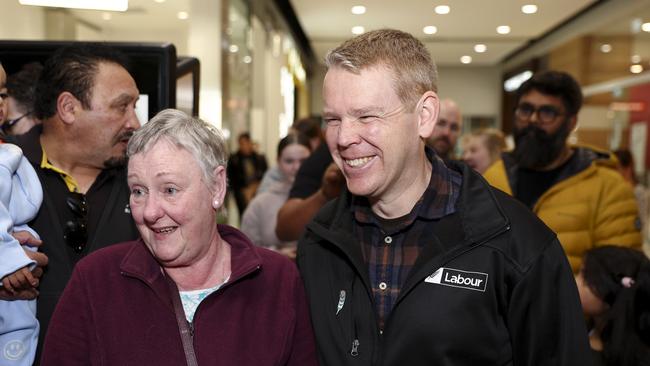
The debate has parallels with Australia’s proposed Indigenous Voice, which was brought up by New Zealanders around the country as I discussed the divisions with politicians, academics and ordinary Maori on the marae. The parallels are such that in his stump speeches around the country, ACT party leader David Seymour makes a point of noting that on the day of the New Zealand election, Australians will be given a chance to vote on a profound change to their constitution, while Kiwis have no such choice over shared governance.
Seymour has been a long-term advocate of a referendum on the principles of the Treaty, and has made it a party policy on the basis that the claim of “partnership” between Maori and the Crown is inaccurate. “The idea that the Treaty is a partnership between races is wrong,” he says. “We have a process that’s excluded a large number of people from the constitutional evolution of this country. The result has been an outcome that treats people differently according to their ancestry. You can be asked to consult on something just because you’re Maori. That’s created an enormous amount of division.”
Waititi believes co-governance in New Zealand hasn’t gone far enough: he takes issue with the very word, which he describes as a “deliberate form of linguistic ingenuity to instil fear in non-Maori New Zealanders for what they perceive is a power brokerage”.
He adds: “It insinuates Maori want something to say in the way in which tauiwi are governed. All we want is self-governance… implementing our own models to our challenges... There is nothing to be afraid of with letting Maori design and implement the solutions for themselves.” And yet there are certain instances where this does not appear to be the case. With the Maori Health Authority, for example, a scathing report found the organisation underspent by millions, and put ethnicity before skills when placing staff, among other faults.
While many agree it’s time Maori had a seat at the table, particularly in decisions that affect their communities, central to the argument against co-governance is that power is being handed to unelected bodies – the Iwi (tribes) – who represent the corporate elite rather than ordinary Maori: an echo of the No campaign that says the Voice will do nothing to help remote Aboriginal communities.
“Co-governance isn’t compatible with democracy,” says Edwards, pointing out that it has been introduced with neither national debate nor mandate. “If there was a part of Maoridom that was electorally operating there might be a lot more justification for it, but instead it’s in the hands of the Iwi. There are parallels to Australia’s Voice. In my view, taking something like this to a referendum is the right way to do it.”
Edwards is sceptical about the reasons behind Labour’s push for co-governance, saying it is merely “papering over the cracks” of real problems below the surface.
“The Labour government has pushed a cultural ethnic agenda quite strongly in lieu of making more substantive transformational decisions,” he says. “Standards in health, education, housing, the Maori standard of living, their place in life has not been improved by this government. It has used more easy wins – te reo [Maori language], co-governance – that are easy to deliver rather than building more houses or making other, tougher decisions that would deliver for Maori.”
Casey Costello, a candidate for New Zealand First, says she has had discussions with the Voice’s No campaigner Jacinta Price, finding their concerns are similar. “It’s really about implementing another bureaucratic mechanism that doesn’t deliver outcomes,” she says. “If you’re already poor, your life hasn’t improved. Nothing trickles down.”
For many New Zealanders, the most visible sign of the swing to Maoridom is the renaissance of the Maori language – te reo – and the spread of Maori culture, particularly in the education sphere. Government departments have been renamed in te reo, cities are now known by their te reo as well as their English name (Auckland, for example, is Tamaki Makaurau, while Wellington, the capital, is Te Whanganui-a-Tara) and the government has only recently been forced to delay plans to make road signs bilingual amid anger at this latest step.
Earlier this year, the body overseeing the country’s polytechnics issued a guidebook of language restrictions, including advising the use of te reo instead of English when referring to students (akonga) and staff (kaimahi).
ACT party leader David Seymour, who has Maori ancestry, says he loves the Maori language – he memorably gave an address in te reo on Waitangi Day this year. But he points out that most people want to navigate government departments in a language they understand.
Maori are also preferenced in certain decisions: teaching staff have been told to take into account a student’s cultural identity when awarding passing grades, while doctors in Auckland have been told to consider a patient’s ethnicity when prioritising surgery.
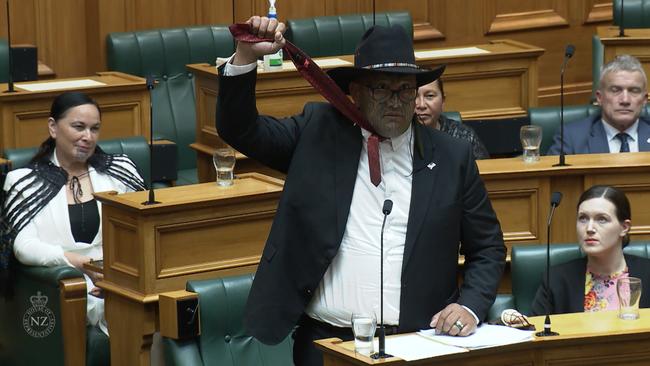
Even more controversial has been the proposal to “decolonise” the entire school system. When seven academics from Auckland University wrote to New Zealand Listener magazine in 2021 protesting against a proposed new science curriculum for schools and universities that recognised Matauranga Maori (the Maori world view) as equivalent to science, they were almost universally condemned. The academics agreed that Matauranga Maori was “critical for the perpetuation of culture” but said it could not be seen as equal to science. The response was visceral: at least 2,000 members of university communities signed an open letter attacking them, the Tertiary Education Union claimed its members found the letter racist and offensive and the university’s vice-chancellor warned it had caused “considerable hurt and dismay” among staff and students.
It took evolutionary biologist Richard Dawkins to weigh in on the academics’ behalf, memorably asking in a Spectator article: “Who are these cringing little wimps whose ‘safety’ requires protection against free speech?” before threats to the academics’ careers faded.
Back at the Tuwharetoa Taiopenga festival, confusion over what co-governance means appears as widespread as it does in the non-Maori population. But Waka Asher, who sits on the local Turangi Co-governance Committee, insists that it has helped the entire community. “For us as mana whenua [Maori with rights over areas of land], we’ve always been told after the fact when policy is made. Now at last we have a seat at the table and we make decisions for all New Zealanders, not just Maori,” he says.
Asher blames Te Pati Maori leader Rawiri Waititi – whom he derides as “a squeaky wheel” – for widening the divisions and scaring the non-Maori population into believing Maori are out for a power grab. “He’s trying to antagonise people,” Asher says. “Every time I see him he’s self-aggrandising, increasing disparity, but what does he do for Maori?”
“He’s too radical,” agrees teacher Erana Taute. “All of us now have some European blood in us – Waititi should acknowledge that and treat everyone equally.”
But a group of young Maori standing nearby say that it doesn’t matter how divisive Waititi is, they will vote for him and his party regardless.
Why?
A young woman who gives her name as Edith speaks simply for her group – and many of her peers. “Because he’s Maori,” she says.


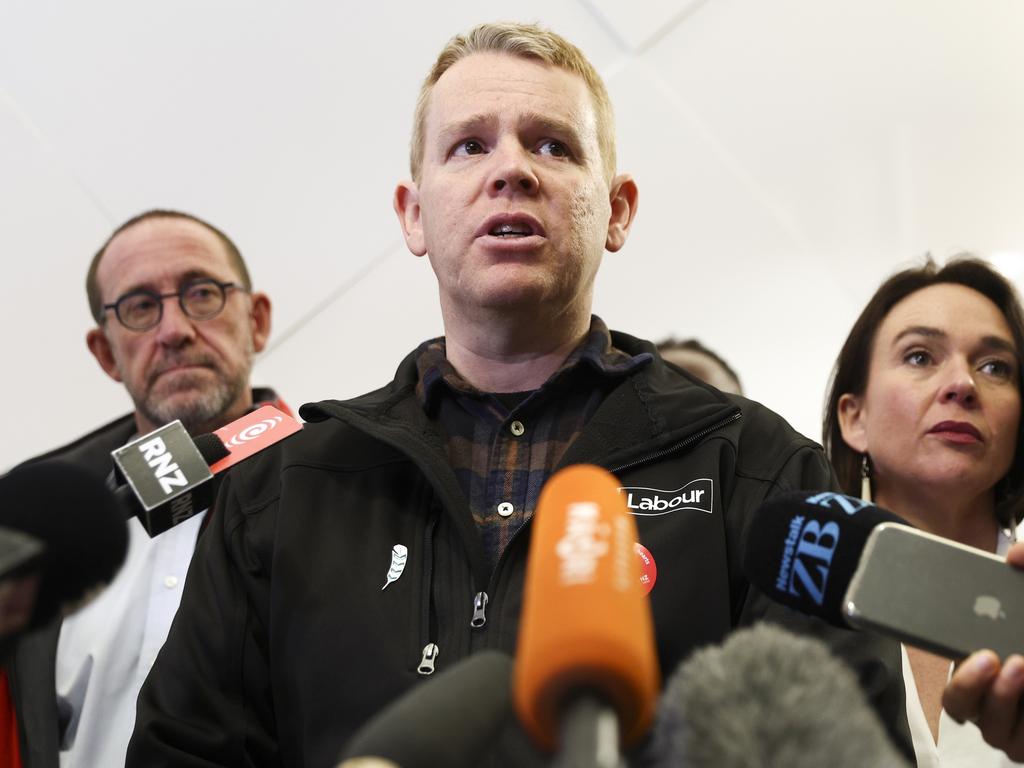

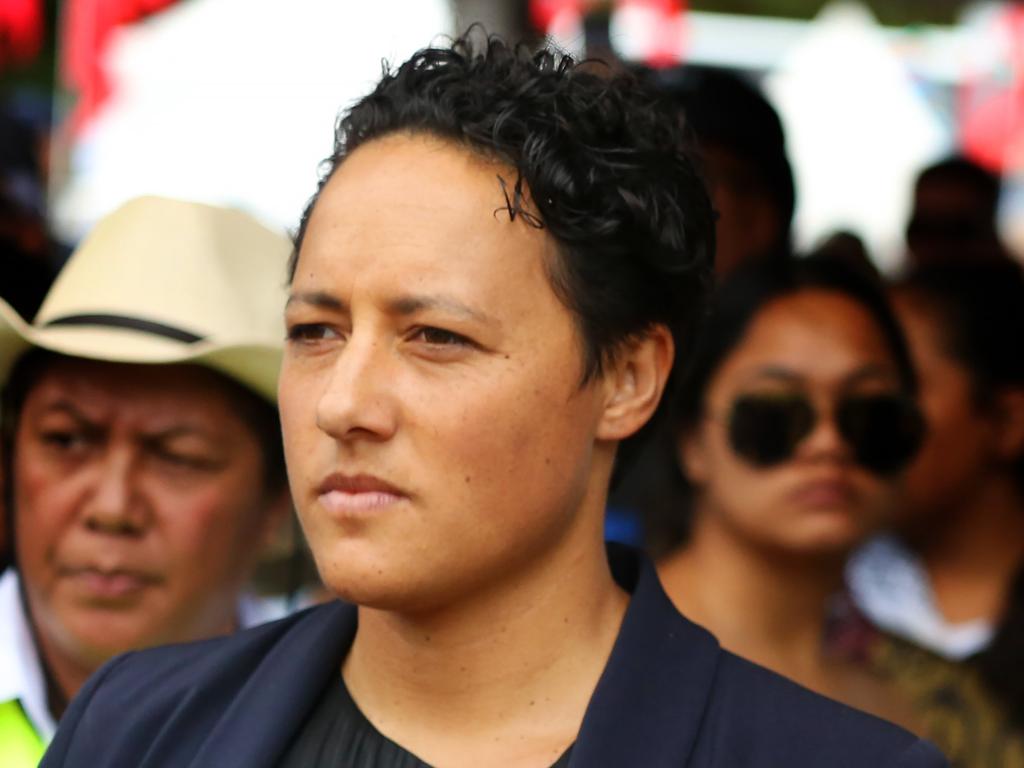

To join the conversation, please log in. Don't have an account? Register
Join the conversation, you are commenting as Logout